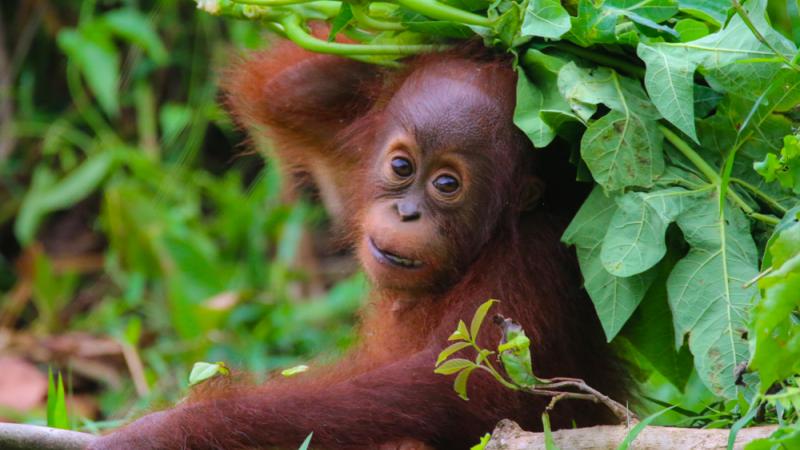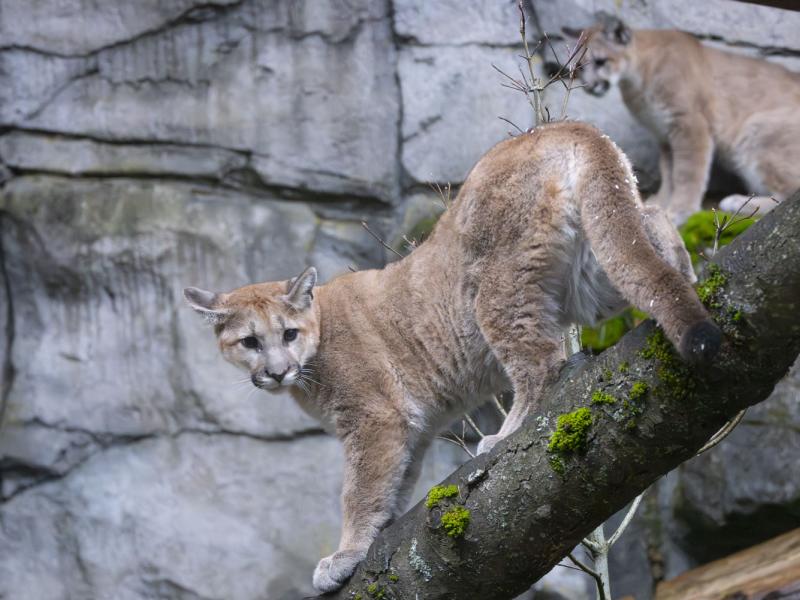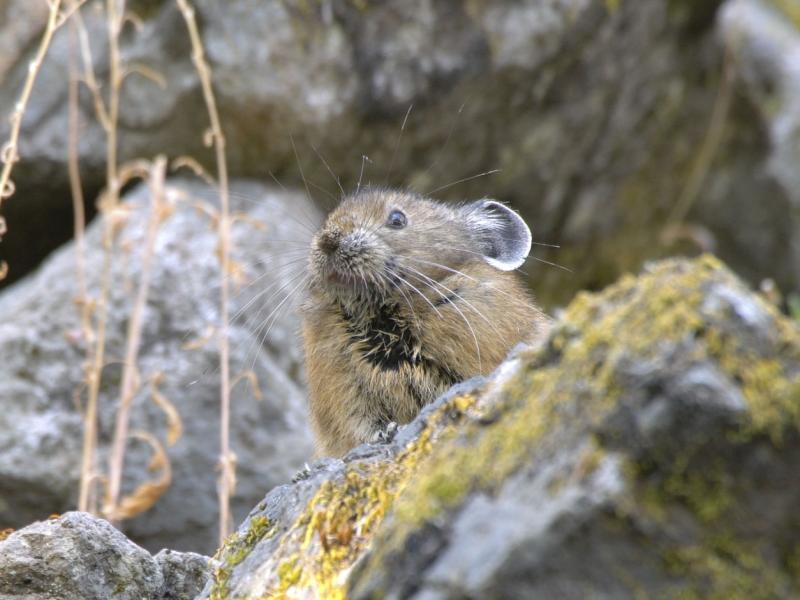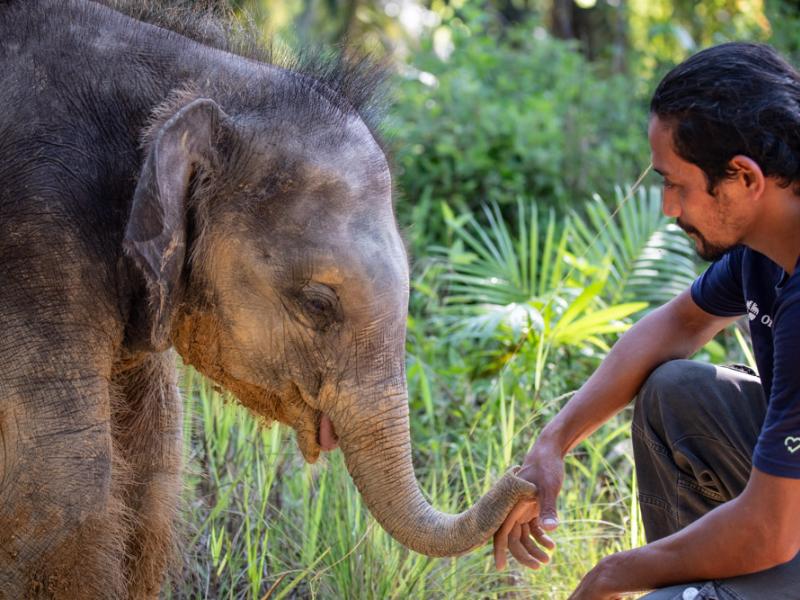Helping baby orangutans stay in school: A Q&A with Cydney Sines

In Borneo, many young orangutans are orphaned due to poaching and habitat loss. The babies who still have a chance at returning to the wild need to learn the survival skills their mothers would have taught them. The Borneo Orangutan Survival Foundation (BOSF) rescues and rehabilitates these orangutans through a program called Forest School.
Oregon Zoo primate keeper Cydney Sines and some colleagues traveled to Borneo recently to help train these Forest School students. Using positive reinforcement techniques, they were able to encourage the young orangutans to learn the skills they'll need to survive in the wild.
Oregon Zoo: How do these young orangutans end up at BOSF?
Cydney Sines: There are a lot of different reasons why they end up being rescued. Often, they're orphaned. Their parents are killed in palm oil plantations or logging areas, and they're rescued and raised by the staff at BOSF. They also often will be found in the illegal pet trade, rescued and then raised for release.
OZ: And why do they need to be rehabilitated, as opposed to just being released right away?
CS: Orangutans are born very dependent on their mothers, much like human babies. It takes them a long time to develop the skills they need to survive, and if they're not taught those things by their mother or by other adults, then they won't be able to survive in the wild. So, it's a very intensive process. Orangutans are also incredibly smart, and they live pretty complex lives, and need to know a lot of skills for those lives.
OZ: How does Forest School work? Do BOSF staff members serve as surrogate mothers for these orangutans?
CS: Yes. The staff there stays with the babies. The first couple of years, they're with them 24/7. They'll have one caretaker for every two animals on average, and the caretakers do everything they need. As they get a little older, the babies start to get more independent. They don't need quite as intensive care, but it's still definitely a full-time job.
OZ: What happens if these orangutans don't learn the skills they need in Forest School?
CS: If the animals don't make it all the way through Forest School, and they reach a certain age without the skills they need to survive, they will not end up being able to be released. They get to a point where they're too big, and it's unsafe if the animals aren't doing the things they need to be doing. They end up having to be in long-term sanctuary, which is of course what we want to avoid.
OZ: You went to Borneo to help the BOSF staff work with these youngsters. What did you do there?
CS: It's all about positive reinforcement. We're teaching the orangutans that they're going to get something good if they do the things that we want them to do, and they're not going to get anything good if they're misbehaving or doing the things we don't want. So, it's very simple. It's a matter of finding something that motivates them, and if they are doing what they're supposed to be doing, then they get some of that thing. If they're not doing what they're supposed to be doing, they don't get it, and they learn very quickly.
For example, there was one youngster that was going after people's feet a lot—he would grab onto boots and not let go. Any time somebody would walk through the area, he would attach to them and just not give up, and so we, in one training session, were able to teach him that if waited calmly near people but didn't go for their boots, that he would get good things for that.
OZ: Is the Forest School program successful?
CS: BOSF has a very high success rate for release. They have an amazing system in place with their Forest School program, and they also have prerelease islands there on site where the orangutans go after they graduate. What that does is it gives them the ability to see how the animal's going to survive in the wild. It's a huge island where they're very hands off with the animals. They come to feed once a day. That way, they can get eyes on those animals every day, make sure they're looking healthy and not losing weight.
But other than that, those animals are independent, and if they thrive in that environment, then the next step is going to the actual forest. Their statistics for success are excellent—they've released 386 orangutans since 2012. Even breeding in the wild, they've had even second-generation births in the wild from animals that they've released over the last 10 years.
OZ: What's it like to help these animals return to the wild?
CS: It is an incredible feeling to be able to participate with BOSF and in this program. It's an absolute dream. To feel like you're having an impact on an entire species is amazing.
More News

Rescued cougar cubs are venturing out
A pair of orphaned cougar cubs, rescued and brought to the zoo by Washington Department of Fish and Wildlife staff in November, have begun exploring their outdoor habitat.April 17, 2025

Zoo seeks pika watchers for summer season
The Oregon Zoo is recruiting volunteers for Cascades Pika Watch.April 15, 2025

Zoo convenes action for imperiled elephants
Sabah government representatives joined conservation NGOs, local communities, palm oil producers, and tourism operators this week in the fight to save the world’s smallest elephants from extinction.April 11, 2025

